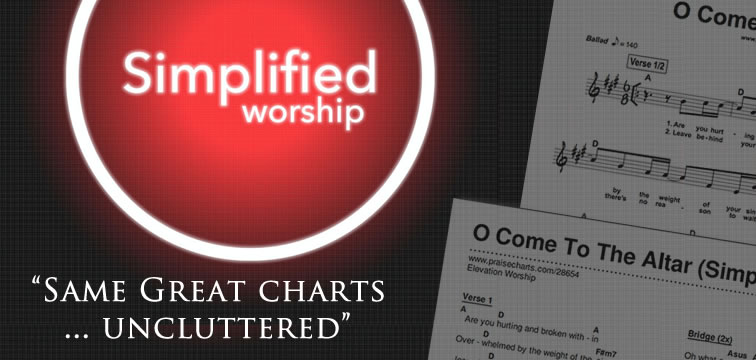Skill Matters to God, It Should Matter to Us Too!
Featuring Bob Kauflin Posted on April 8, 2010
Five Things to Remember about Skill
But simply valuing skill isn't sufficient. We need a theologically informedunderstanding of skill so that we can pursue it in a way that pleases God.
Here are five principles to keep in mind as we seek to become more competent in what God has called us to do.
Skill Is a Gift from God, for His Glory
None of us can claim credit for our abilities. As Paul asked the Corinthians, “What do you have that you did not receive? If then you received it, why doyou boast as if you did not receive it?” (1 Corinthians 4:7).
I remember a musician in college who had trouble understanding why Godshould get any glory for his (the musician's) gifts. He reasoned that God wasn't the one sitting in a practice room for hours on end. This guy didn't understand grace, which provides not only our gifts but the ability and endurance to develop them. As my good friend C. J. Mahaney says, “All giftsfrom God are intended to direct our attention to God and create fresh affection for God.”1
Skill Must Be Developed
We read in 1 Chronicles 25:7 that the musicians ministering at the tabernaclewere those “who were trained in singing to the Lord, all who were skillful.”
Skill must be developed.
Wynton Marsalis, Yo-Yo Ma, Pat Metheny, and other legendary musicianshave demonstrated that excellence comes not only from being gifted but frompracticing harder, longer, and more comprehensively than others. The greatest musicians put in countless hours honing their talent, realizing that skill must be cultivated.
When I entered Temple University as a piano performance major, my goalwas to practice enough to be able to play any piece I desired when I finished school. Over the next four years I averaged four hours a day, seven days aweek. I had friends who put in even more time.
Sometimes people say to me, “I wish I could play the piano like you do.”My standard reply is, “You can! It just takes a little gifting and practicing fourhours a day for four years.”
I shared that recently with a worship leader, and he told me it was discouraging. Who has time to practice four hours a day? No worship leader I know, that's for sure. But if you want to grow in your craft, you have to develop your skill. Even if it's only fifteen minutes a day or an hour a week, it will make a difference in the long run.
Skill Doesn't Make Worship More Acceptable before God
While God values skill, he doesn't accept our worship on the basis of it. Even if I can play the most complex chord progressions, write better songs than Matt Redman, or play a song flawlessly, I still need the atoning work of theSavior to perfect my offering of worship (1 Peter 2:5).
We worship leaders can struggle with discouragement when we miss an entrance, play a wrong chord, or forget the lyrics. We can feel elated wheneverything goes well. But God isn't listening to the sound of our music or the quality of our performance. He's hearing the sound of our hearts.
Years ago I heard a pastor say, “God isn't looking for something brilliant; he's looking for something broken.” We'll never impress God with our musical expertise or sophistication. What impresses God is “a broken and contrite heart” (Psalm 51:17) that recognizes our weakness and puts our faith in the finished work of Christ.
Skill Should Be Evaluated by Others
Even after thirty years of leading worship, I can't always tell if what I'm doing ishelpful or where I need to grow. I need the eyes and ears of those with whomI'm serving.
The feedback I receive from my team and others during rehearsals andafter meetings is invaluable. Is that arrangement working? Did I sing that chorus too many times? Was I clear? Did I play too much? It's both humbling and helpful to hear back from people I trust who'll speak the truth. Especially my pastor.
By the way, don't give too much weight to comments from those who weekafter week tell you how “blessed” they were by your worship leading. Their encouragement, though sincere, won't necessarily help you grow.
Skill Is Not an End in Itself
Valuing skill too highly can yield some ugly fruit. It becomes an idol. We arrogantly think our church's worship is better than the church down the street. We over-rehearse and get impatient when others make mistakes. We minimize spiritual preparation and devote ourselves entirely to musical issues.We evaluate failure or success solely on right tempos, in-tune vocals, andwell-executed plans. We take pride in our polished performance rather thanbeing humbled by God's mercy.
After a time of corporate worship, I'm always a little disappointed when someone says, “I loved your keyboard playing!” I don't want them to even focus on my playing, except as it helps them see God's character and works more clearly as we sing.
God wants us to realize that the point of our practice isn't to receive the praise of others. It's to bring him glory.
Tags: Worship Matters, Worship Life, Worship Team, Instrumental Training
Related Posts
Other Posts Featuring Bob Kauflin
- Why Confession Is Good for Your Soul and Your Church with Bob Kauflin
- Planning Sunday's Songs-Plan Contextually
- Focus on Projecting Lyrics
- Music Should Display Variety
- Hearing Familiar Words in a Fresh Way
- Planning Sunday's Songs-Plan Selectively
- Planning Sunday's Songs
- Selecting Sunday's Songs-Plan Creatively
